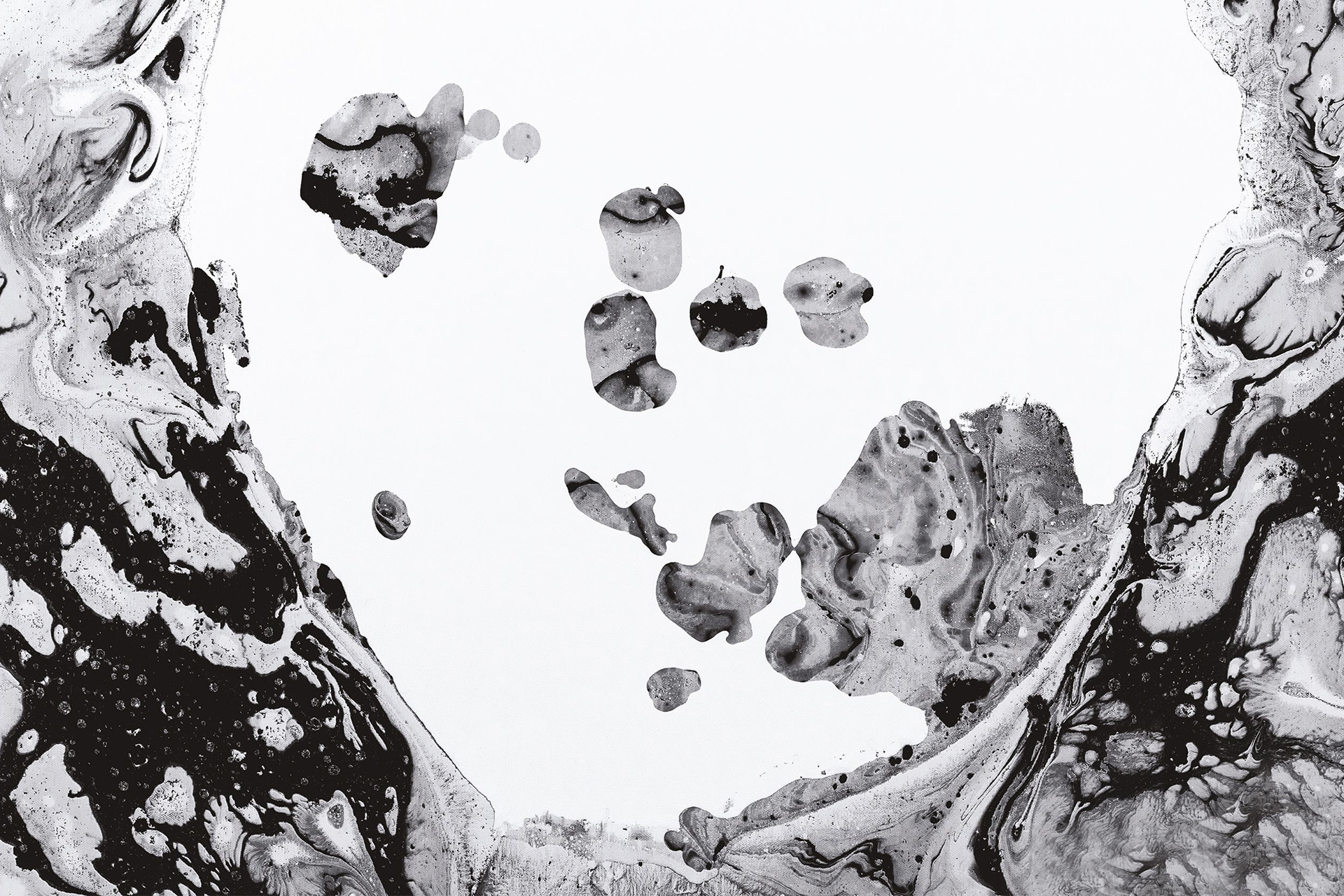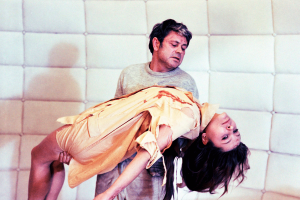«Then into our life there comes the darkness, there’s a spacecraft blocking out the sky…” is on the surface ready to be read, not in its depths ready to be interpreted; it is on the line of sight that draws the horizon. In this first stanza of Decks Dark, from Radiohead’s newest album A Moon Shaped Pool, one can sense the panic. «And there’s nowhere to hide. You run to the back and you cover your ears, it’s the loudest sound you’ve ever heard.»
It is the alien, the strange, the sinister that has come. «And all we trapped rag doll cloth people,” people made of rags, «helpless to resist into our darkest hour.» Just as » we are the hollow men… filled with Straw,» according to Eliot.
The elements of Thom Yorke’s life on this album –the effects of the loss of his relationship with his wife, which is fundamental in his life– leave signs throughout A Moon Shaped Pool. This can distract us. Just as the beautifully dissonant elements in music distract us from the fact that it is built to signal an inhabited void.
In order not to become distracted, one must disarm, analyze, what may produce an effect. It is necessary to separate the effect from what closes it, describe what it delineates, show what it is pointing out. This is the use of the word «interpretation» in contemporary Lacanian psychoanalysis. Just as the term «unconscious» lends itself to the misunderstanding that it is something located is in some supposed depths of consciousness, the term «interpretation» lends itself to the thought that it is a question of extracting meaning from the enigma. But in interpreting, psychoanalysts use the enigma to signal the limit where it can be perceived that all the power of language is an illusion, that its power has no beyond.
Urgency is read from the unconscious, but as we have seen, there is a trick in that. For what we call «the unconscious» is divided between what-cannot-be-said and what-cannot-be-said. The first is what-cannot-be-said because it is censored –to treat it, psychoanalysis recovers the device of truth from the sort of scrapyard where postmodernity threw it. On the other hand, and more importantly, there is what-cannot-be-said because it is materially impossible, because there is nothing to say it with, because there is no such thing as saying it. A Moon Shaped Pool reminds us that what is unspeakable, insofar as language does not have the substance to speak it, is not a field exclusive to psychoanalysis.
The unconscious is the coastline between the two arrays. And here is a great difficulty of the act of speaking: without what-cannot-be-said because it is censored, it would be impossible to touch what-cannot-be-said because there is nothing to say it with. What cannot be said still masks and conceals what can plainly not be said.
In A Moon Shaped Pool, we have the effect of poetry for what-cannot-be-said, and for what-cannot-be-said, we have the effect of music. This is a use of music to indicate the void and the urgency that appear there, without covering them with meaning. When urgency arises, avoid turgidity. But can this discipline be practiced?
What is censored is the horizon of events in the black hole of impossibility. The horizon of events is bright and interesting, it draws attention. One can stay there, whirling, taking tours indefinitely; for example, in the story of what it cost the artist to put into poetry the urgency that seized his life. But this prevents the palpation and experience of the black hole, which is not only an emptiness but, as he expresses it, an indecipherable presence.
Urgency, insofar as it is traumatic, can be addressed from the perspective of that which is imprinted by the absolute necessity to produce a solution, but also from the perspective of that which outlines what cannot be said, period. These two perspectives on urgency are not mutually exclusive. In the first, psychotherapy is satisfied. Psychoanalysis, in turn, without dismissing the first perspective, postulates that there is no stable solution without taking a walk across the consequence of defining what cannot be said, period.
Despite the illusion of human rights, which makes us think that we should be protected, there will always be urgencies, and perhaps, due to globalization, they will become increasingly serious and involve more people. The decisive thing is what we will do with these new urgencies, the use that we give them. This is not about a discourse of resilience or adaptation, much less about taking personal advantage while everything sinks –the contemporary version of morality, halfway between hedonistic and wicked. It is about a discourse on the ineffable and the unavoidable, which finds a paradigm in the ineffable and the unavoidable that inhabits one’s own body, that black hole of which the «mind» is the horizon of events.
In psychoanalytic practice, it is often heard that, among the insistence of contemporary urgencies, the person who speaks to us is convinced that urgency is responsible for the appearance of an abnormality from which she wants to get rid of. On the contrary, this urgency makes possible the location of a specific entanglement that had been veiled by the illusion of normality.
This is what Thom Yorke shows us with this record: that it is truly only about «a laugh, a lie,» that meaning «is whatever you say it is … in split infinities,» but also that this place may reveal a «sweet dark.»
Decks Dark
Then into our life there comes the darkness
There’s a spacecraft blocking out the sky
And there’s nowhere to hide
You run to the back and you cover your ears
It’s the loudest sound you’ve ever heard
And all we trapped rag doll cloth people
We are helpless to resist
Into our darkest hour
But it was just a laugh
Even at this angle
And so we crumble
A ten-ton head made of sand
Oh this dread circumference
You gotta be kidding me
The grass grows over me
Your face in the glass
It was just a laugh
It’s whatever you say it is
In split infinities
When you’ve had enough of me
Sweet time
Sweet dark
About the author:
Carlos Márquez is a practicing psychoanalyst in Caracas. Member of the World Association of Psychoanalysis and of the New Lacanian School. Author of Sujeto, capitalismo y psicoanálisis (2012), Zombis, rinocerontes y la verdad en psicoanálisis (2013) and El amanecer de lo singular (2016), published in Caracas by Grafismo Fondo Editorial and Araca Editores. He holds a PhD in Social Sciences from the Universidad Central de Venezuela.

















